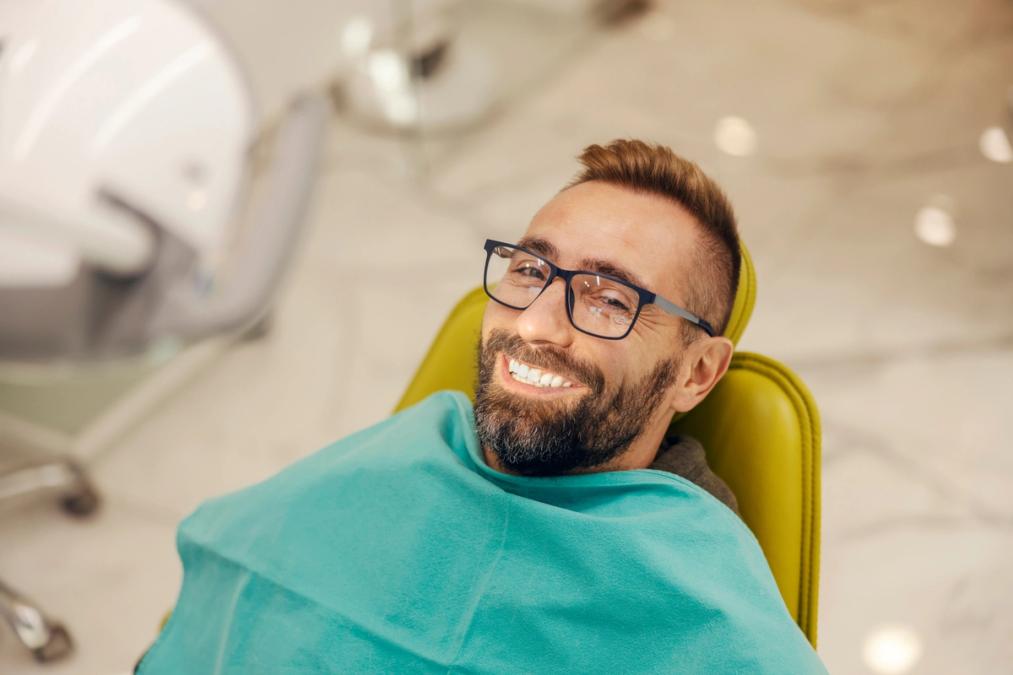Calmer Visits, Better Care: Dental Anxiety Help With Nitrous Oxide and Oral Sedation
Published on Sep 1, 2025 | 5 minute read

If the thought of a dental chair sets your heart racing, you’re in good company. Dental anxiety is common—and manageable. Two gentle tools, nitrous oxide and oral sedation, can help you relax without giving up control, so you can finally get the care you’ve been putting off.
What Dental Anxiety Looks Like (and Why It’s Normal)
Trouble sleeping before an appointment, sweaty palms in the waiting room, flinching at the sound of a drill—these are classic signs. Past experiences, sensitive gag reflexes, or simply not knowing what will happen can all feed worry. The first step is predictable care: clear explanations, breaks when you need them, and a plan that respects your pace.
Nitrous Oxide: Light, Adjustable Relaxation
Nitrous oxide (often called laughing gas) is a blend you breathe through a small nose mask. Within minutes, you feel calm, warm, and a little floaty—but you’re awake and can respond. Your dentist can fine-tune the level in real time, and once the gas stops, oxygen flushes it from your system quickly. Many people return to typical daily plans soon after.
It’s a good fit if you want minimal sedation, quick recovery, and the ability to drive most of your own visit experience. Trained teams follow safety protocols and monitor breathing and comfort throughout.
Oral Sedation: A Deeper Kind of Calm
Oral sedation usually involves taking a prescribed pill before your appointment. The goal is deeper relaxation—and often less memory of the visit—while you remain responsive. Because it lingers longer than nitrous oxide, you’ll need a ride to and from the office and should plan a low-key day.
Dosing is individualized based on your health, medications, and the length of treatment. You’ll receive clear instructions about food, fluids, and what to expect. Many patients with moderate dental anxiety find oral sedation to be that “missing piece” that makes longer or more involved care not just possible but comfortable.
Safety First: Screening, Training, and Monitoring
Before any sedation, your dentist will review your medical history, current medications, allergies, and previous experiences. Professional organizations publish detailed guidelines for minimal and moderate sedation—covering provider training, emergency readiness, equipment, and continuous monitoring. You’ll sign informed consent after your questions are answered. During care, your breathing, responsiveness, and comfort are watched carefully so the level of sedation stays in the intended zone.
If you’re ill with a head cold or have significant respiratory issues, nitrous oxide may be postponed. If you’re pregnant or have certain medical conditions, your team will coordinate with your physician and adjust the plan.
Which Option Fits You?
- Choose nitrous oxide if you prefer a lighter touch, want to stay very alert, and value a quick return to normal.
- Consider oral sedation if you have moderate anxiety, bigger treatment needs, a strong gag reflex, or you want a calmer memory of the visit.
- Many patients combine approaches over time—nitrous for cleanings, oral sedation for longer restorative visits.
Add nonsedative comforts, too: noise-canceling headphones, blankets, hand signals for breaks, and topical numbing before injections. Small things add up.
Benefits & Evidence: Why These Methods Are Trusted
- Nitrous oxide is a well-established, minimal sedation option with rapid onset and offset when administered by trained professionals. (American Dental Association clinical resources)
- Oral sedation provides safe anxiolysis or moderate sedation in healthy adults when dosed and monitored according to published guidelines. (ADA, ASA sedation continuum; peer-reviewed clinical primers)
- Standardized training and equipment requirements support safety in dental offices. (ADA guidelines; state dental board policies; AAPD for pediatric protocols)
If worry has kept you from the care you need, let’s change that story. Contact CK Family Dental at (301)236-9000 or visit 15434 New Hampshire Ave, Silver Spring, MD 20905 to book an appointment and talk through dental anxiety options—including nitrous oxide and oral sedation—that fit your comfort level.